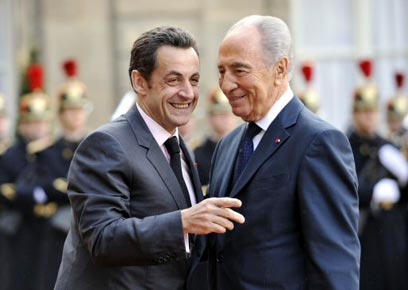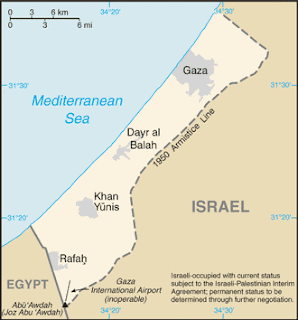The recent civil unrest notwithstanding, one can be sure that John McCain and others will continue to tout the success of the Surge in Iraq. For the observant, the failure of the Maliki government to win the battle of Basra and stabilize the south of the country, not to mention the Sadr City district of the capital, wasn't the first indication that the Surge's gains conceal -- or even generate -- a number of threats to the stability of Iraq and the region. For example, media analysis has questioned the wisdom of the deals struck between the US military and the leadership of various Sunni tribes, most notably in Anbar Province, which created the concerned citizens brigades. These are essentially militias made up of former insurgents and the dispossessed veterans of Saddam's old army, armed by the US to fight Al Qaeda. They number some 90,000. And a sheik who commands 200 militiamen can draw a $100,000 annual salary from the Americans. Moreover, I don't think anyone suggested during the period of quiescence that preceded the recent Iraqi army incursion into Basra that Moktada al-Sadr was reconciled to an American vision of sectarian reconciliation. So an intensive critique of the Surge written by a National Security Council member from the Clinton era is not ground breaking stuff. Nevertheless, the Council on Foreign Relations' Steven Simon, in an essay in the next issue of
Foreign Affairs, comes to some novel conclusions.
Steven's main argument is that the Surge, while suppressing American casualties, has deeply harmed the prospects for a unified, stable, friendly Iraq, by "retribalizing" the country. This is Bush's "bottom-up" strategy for Iraq, which the President kicked off in January 2007. Iraqi history, as Steven's sees it, has witnessed the ebb and flow of tribal power. While the Ottomans suppressed the tribes by intervening in settlement patterns, the British built them up as a counterweight to urban nationalism. Saddam's Baathist ideology militated against the power of the tribe, but in practice the strongman ruler turned to his own tribal network time and again, and, in the hard times of the 90s, brought tribal leaders into the fold. Now, tribes, and some vague "tribal identity" are stronger than ever, argues Steven, and it will take a "top-down" strategy to integrate these centrifugal forces, unleashed by the Surge, back into a nation. What Steven's suggest, in a rather milquetoast way, is that a) the US commit to a phased withdrawal, something like a two-year window, thereby generating goodwill inside and out of Iraq, b) the UN send an envoy to the country with a robust mandate, and c) in the space created by these two steps, reconciliation in Iraq takes place amidst heavy multilateral engagement from the likes of the Europeans and regional states who've now been enticed in.
How ironic. The breathing space we were promised with the Surge, that which was supposed to allow Maliki to make progress on political reconciliation, is promised yet again. On the one hand, we've got a firm, albeit unspecific vow to withdraw, subject, as Steven admits, to the whims of the American electorate. On the other, we have the vain hope of real cooperation from a number of quarters on bringing Iraq (back) together -- once the US has ceded meaningful unilateral power. According to Stevens, this is the best of the bad options. Stevens thesis has less weight, I think, than some of his other suggestions and conclusions. For example, he makes a very interesting point about what the goal should be with respect to the Sunni body politic. If we're interested in a stable, unified Iraq, we really need a Sunni nationalist front to reconstitute itself and regain its confidence. This sector of Iraqi politics shouldn't be seen as a bogey man, a relic of the past, an affront to reconciliation or Shiite healing. Sunni revanchist politics organized at the state level is the alternative to the politics of the tribes, which one day will turn their guns away from Al Qaeda and back on the Americans. Stevens also comes up with a surprising scenario for the future of the Iraq Army. Rather than an incompetent fighting force of a sectarian character, Stevens sees a corporate institution that outstrips the authority of an ineffectual central government! Instead of an Iranian vassal state, we end up getting a Baathist-style military junta that may or may not be friendly to US interests! If the military does shape up in this way, are there other models, perhaps Lebanon, that come to mind?
Postscript:
Wow, the talking points on the Surge are really shaping up. The Petraeus hearings today revealed a lot. Some of the hawks want to see the Basra initiative as evidence that Iraq is headed in the right direction. That's what Sen. James Inhofe claimed (R-Oklahoma). Look, he's saying, the central government is finally taking on the centrifugal forces of the militias, militias with which the ruling party shares a sectarian identity! Not only does this misconstrue the relationship between the various Shiite factions, it papers over a stunning military defeat. So who won Basra? The hawks say Sadr gave up, from his base in Iran. So Maliki won somehow, because he took the fight to them. At the same time, they say that Iran is turning Iraq into Lebanon. But if Lebanon and Hezbollah are the model, the Iraqi street doesn't see the Maliki government as the "winners." The Mahdi Army is the "winner." But I would be curious, does anyone on the Iraqi street see things this way? The Green Zone experienced one of its worst days in a long time this week, fighting in Sadr City is fierce. I just don't buy that characterization of the Iraq Street, which came from the American Enterprise Institute's Frederick Kagan on the
Newshour with Jim Lehrer.
Also, Obama's comments during the afternoon portion of the hearings, just the Foreign Relations subcommittee, were very impressive. He disarmed ambassador Crocker, and laid out the "no end in sight" problem very well. He also softly took apart the idea that the Mahdi Army is the only Iranian proxy in Iraq. Obama poked fun at the idea that the US would ever rid Iraq of Iranian influence by describing the dream scenario as one in which the Iranian influence in the country is to our likening. I think people like McCain are going to be saying in the next year that Al Qaeda as been defeated by the Sunni Awakening, now it's time to defeat the fifth column of the "Iranian-backed militias." That rhetoric should be attacked wherever it appears.








